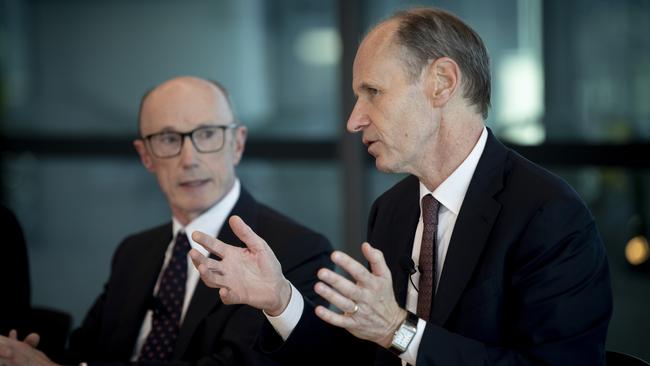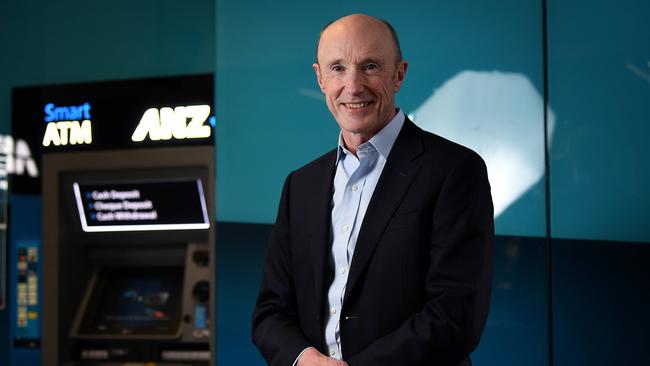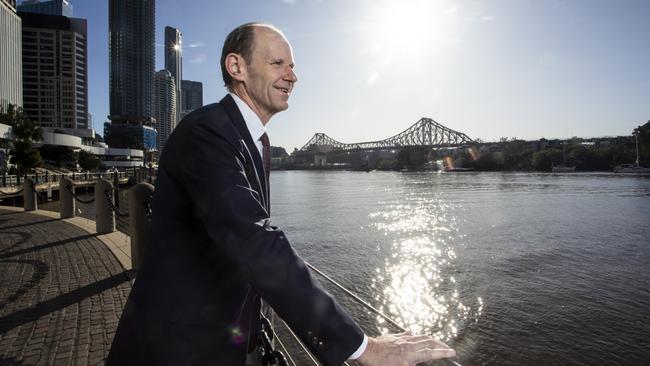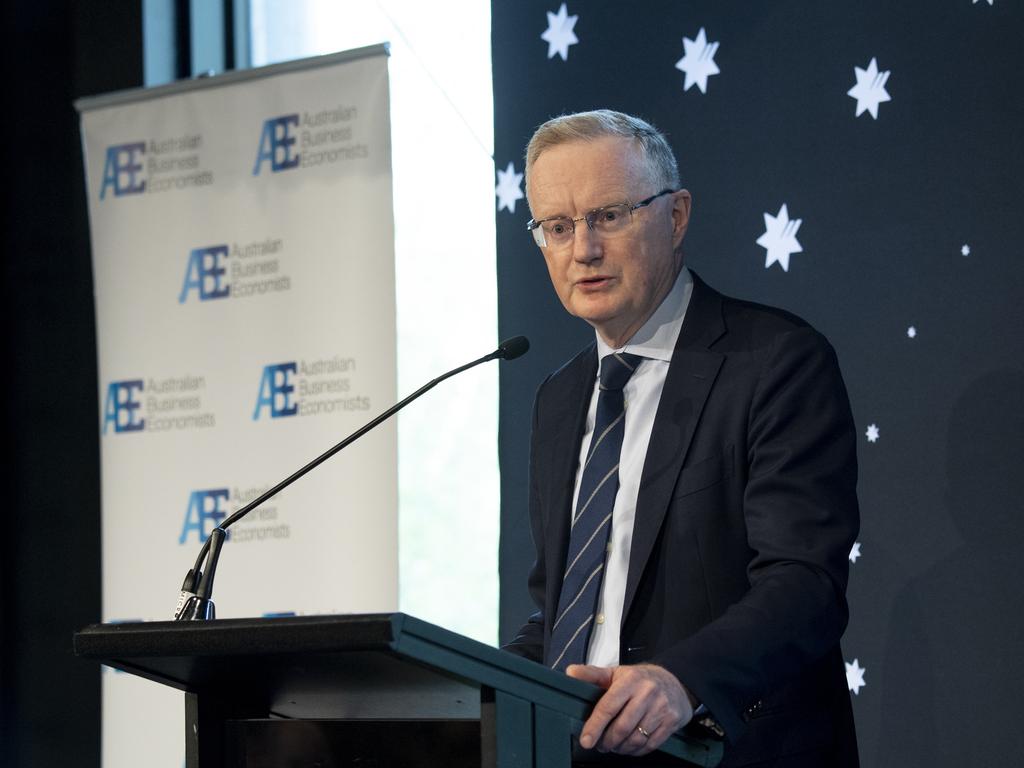
Chairman Paul O’Sullivan says he is also looking at external names for the eventual succession, although for now Elliott and the board “are focused on transformation and building the bank of tomorrow”.
“We’ve got to act in the long term, best interests of the business and that means having internal and external options,” O’Sullivan says in his first major interview since being appointed chairman two years ago.
“Part of my responsibility is to make sure that we’re developing options. So absolutely, we’ve got some good internal options.
“We have actually done some very structured evaluation of our senior executives. We’ve identified where the development needs to be – that’s one of the things we want to see as a board before it would give us confidence that somebody is ready for that next opportunity.”
As a three-decade banking veteran, Elliott is the longest-serving of Australia’s big four bank bosses. The former chief financial officer, he took charge at the start of 2016 and has since set about attempting to simplify the bank and sell off billions of dollars of assets including wealth management. He has also overseen a rapid-fire exit of ANZ’s Asian investments as part of efforts to reduce risk and focus on Australia and New Zealand.
Elliott’s tenure has stood out given that over the past 6½ years the chief executives at each of ANZ’s three main rivals have either been forced out early or fallen on their sword due to anti-money laundering missteps (CBA and Westpac) or the Hayne royal commission (NAB).
The longevity of Elliott provides “consistency of strategy” as the bank has been working to simplify its processes and rebuild its technology, O’Sullivan says.
He would not comment on candidates, but analysts regard ANZ’s institutional boss Mark Whelan as a leading internal name, although it is believed New Zealand CEO Antonia Watson and Australian retail executive Maile Carnegie are also being tested internally for the top job.
Elliott’s recently announced plan to buy Suncorp’s banking arm for $4.9bn is seen as a sign that he intends to remain for the first phase of the complex banking integration if the deal wins approval from regulators. It is understood ANZ is aiming to finalise it submission on the deal to the competition regulator by the year’s end.

The comments by O’Sullivan, who is also chair of telco major Optus and Western Sydney Airport development, were part of a wide-ranging interview in Auckland where the bank’s board was able to see its NZ business up close for the first time since Covid-19 closed borders across the Tasman.
O’Sullivan says Australian businesses need to step up in the face of economic headwinds, to ensure they are investing alongside workers to ensure that any wages breakout simply doesn’t drive further inflation through the economy.
In Sydney on Thursday RBA governor Philip Lowe signalled that the pace of this year’s cash rate rises are likely to slow, even as he warned that further policy tightening would be needed to combat inflation. The comments were seen by markets as the central bank taking a dovish tilt following this week’s 50 basis point hike which took the official cash rate to 2.35 per cent.
O’Sullivan cautions over fast-paced wages growth that is starting to emerge without productivity gains, noting economies like NZ are suffering from inflationary pressures amid steep pay increases.
“You have to drive the upskilling of people to develop new skills and capabilities. (Business) has got a role to play as well as government and others. That’s the only way we’ll get out of this,” he says.
ANZ’s housing book is in “sound shape” in the face of multiple rate rises both in Australia and New Zealand. Low unemployment rates are helping to support rising costs across the economy, although O’Sullivan says the bank is watching for signs of stress – particularly in small business with Australia facing a “tricky” external environment.
He takes aim at critics who have called out ANZ’s lagging position on technology among the major banks. ANZ has been overhauling its tech, and while it is taking longer than expected it follows years of underinvestment.
Until the project is finished the bank will have to relying on its legacy technology, allowing rivals to move ahead with analytics and high speed loans. Earlier this year it launched its ANZ Plus mobile app aimed squarely at younger savers. Over time customers will be moved onto the cutting-edge platform which is set to underpin the bank’s entire transformation.
A former telco executive, O’Sullivan likens the tech project to a major home renovation “which is taking a while” but gave his backing to Elliott for making the call to build the platform in-house, which he sees will give the bank a longer-term edge.
“It’s as if you’ve got a home renovation, where you’ve knocked down the back of the house and your mates all think it’s just taking forever and it’s terrible every time you go round. But actually, fundamentally, you put in place things that are going to be there for the next 20-30 years – that’s where we’re at.
“Once that’s done it’s going to be the home renovation that the neighbours all envy.”

He says the in-house development was preferred to buying a tech system off the shelf. “We’re not going to do that – we want to be able to customise and do things which are innovative.”
He believes the new platform will give ANZ an edge on data and analytics that will be fundamental for banking of the future. This means it can take on the global tech giants which are increasingly pushing into banking.
The planned Suncorp deal fits squarely into ANZ’s tech strategy while giving the bank scale to offset the cost of the investment.
“This (acquisition) gives us a step up in share in the Queensland market where we’ve been under-represented historically. And if you really believe the conviction that we’re building a technology base, that gives us much lower cost to serve customers. That will be advantageous in getting better loyalty from customers.”
O’Sullivan rejects suggestions that the decision to chase Suncorp is reactive to the loss of market share in mortgages though the Covid-19 borrowing surge.
“To do something like this you’ve got to really believe that’s it’s the right thing to do for the long term interest of the business.”
Separately, he says investors are becoming more “nuanced” around demands for environment, social and governance, particularly when it comes to transitioning to green energy.
Banks have been coming under pressure to dump or sharply curb exposure to heavy carbon emitting industries, including coal and gas projects. But O’Sullivan says he stands by his initial comments two years ago about having to plan for the energy transition very carefully to avoid disruptions.
“The people that you’re seeing in Europe now who are suffering most on energy prices are those who are on the lowest incomes or are marginalised,” he says.
“So we’ve been quite clear in saying we will lend to companies using fossil fuels or involved in fossil fuels, provided they meet the criteria, that they have this transition plan to get to a lower emissions intensity.
“I think with Ukraine, and the energy crisis in Europe, also with some reflection by the big funds, which you started to see even before that, they’re realising that you need a transition, you just can’t do it overnight … but actually in the trend line you’re getting in the right direction.”
The author travelled to New Zealand as a guest of ANZ
johnstone@theaustralian.com.au






ANZ’s board has been developing “good internal” candidates to succeed long-serving chief executive Shayne Elliott, with structured evaluation of senior executives already taking place.